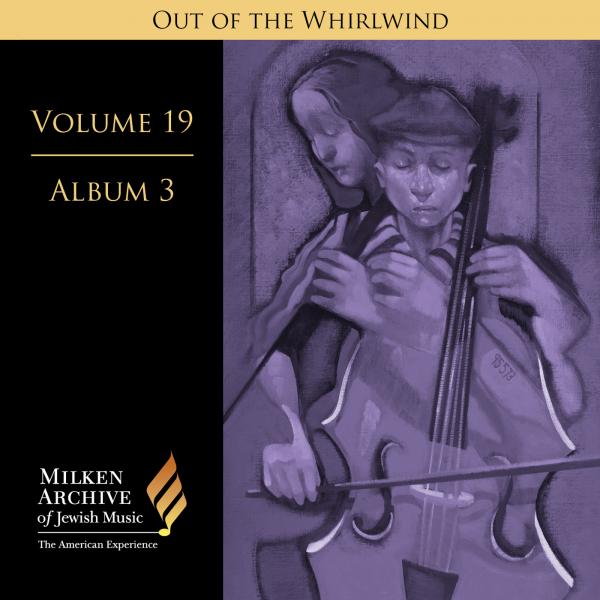Volume 19: Digital Album 3
Title |
Time |
Play |
| From the Forest of Chimneys | 16:40 | ▼ |
| I. Fiercely and Bitterly Staggering | 04:24 | |
| II. Metallic | 01:38 | |
| III. Lontano doloroso | 03:34 | |
| IV. Lontano | 07:02 | |
| Yizkor | 10:07 | ▼ |
| Yizkor | 10:07 | |
| Kaddish | 15:44 | ▼ |
| Kaddish: To the Victims of the Holocaust | 15:44 | |
| String Quartet No. 3 | 18:35 | ▼ |
| I. Grave | 07:51 | |
| II. Lament and Prayer | 10:44 | |
| Elegy For Anne Frank | 08:00 | ▼ |
| Elegy For Anne Frank | 08:00 |

Wallach - Stock - Radzynski - Schonthal - Foss
When composer Joelle Wallach stood atop the watchtower at the Birkenau death camp on a cool, rainy day, she looked out over the remnants of dilapidated smokestacks and perceived a “forest of chimneys.” She saw swirls of mist rising from the ground and thought of them as “lost songs” that those who died there never got to sing. It was a powerful image she translated into musical form in an octet titled From the Forest of Chimneys, which opens this third album of Volume 19—Out of the Whrilwind: Musical Reflections of the Holocaust. The album also includes works David Stock, Jan Radzynski, Ruth Schonthal, and Lukas Foss.
Ruth Schonthal had always avoided the Holocaust as a composer. Having been born in Hamburg and endured Germany through 1920s and 30s, she understood all too well that the event was too horrific to take lightly. She feared that even an earnest attempt could turn out to be trivial. She overcame this fear with her String Quartet No. 3: In Memoriam, for which she conceived of each instrument as an individual experience and did not shy away from depicting violence or death.
The works by David Stock and Jan Radzysnki take inspiration from Jewish liturgical contexts. Stock’s Yizkor—a reference to the formal Jewish memorial service—is an orchestral work of contemplative character, slowly shifting textures, and elegiac melodies that emphasize strings. Radzynski’s Kaddish: To the Victims of the Holocaust was inspired by Aramaic liturgical text recited in memory of the dead. Its intense—at times, jolting—style reflects the influence of his teacher, Krystof Penderecki.
The album closes with the moving Elegy for Anne Frank by Lukas Foss, a piece for orchestra and piano that Foss composed for a 1989 concert and symposium marking the 60th anniversary of Frank’s birth. “It is one of the most soulful things I’ve ever done,” Foss recalled in a Milken Archive oral history session. Foss, too, was born in Germany in the 1920s and witnessed the rise of Nazism firsthand. The piece evokes a range of moods, from slow, dream-like passages to ominous, percussive sections that suggest marching military troops.